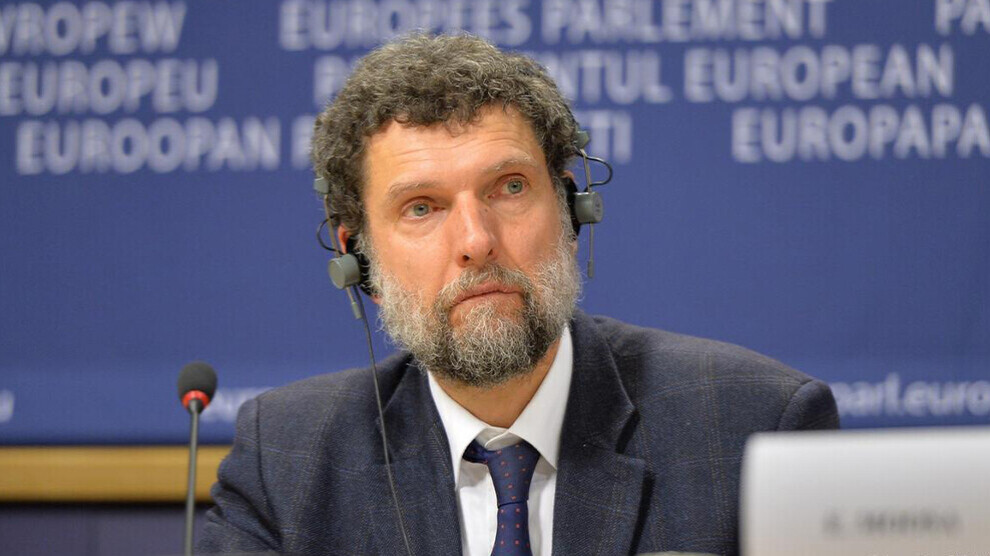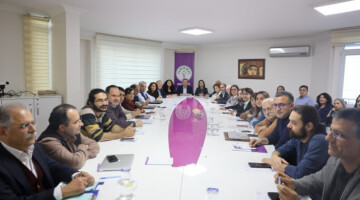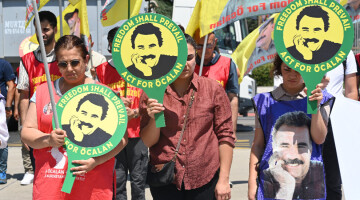Turkish philanthropist Osman Kavala has been sentenced to an aggravated life sentence in Istanbul's much-criticized "Gezi trial." The three judges handed down the sentence to the 64-year-old on charges of attempting to overthrow the government. Prospects of conditional release for Kavala do not exist according to valid case law: persons sentenced to life imprisonment with aggravated execution for crimes that the court considers committed against the "security of the state" remain in custody until physical death. The courtroom immediately reacted to the decision with boos and loud protests. The verdict is not yet final.
Kavala has been imprisoned in the maximum-security Silivri prison near Istanbul for four and a half years without having been found guilty of any of the charges against him so far. The Turkish judiciary and President Recep Tayyip Erdoğan accuse him of trying to destabilize the country. According to the indictment, the charges in the trial were an attempted coup in connection with the Gezi protests of 2013 and "political and military espionage" in connection with the coup attempt of 2016. In February 2020, a court acquitted him of this charge.
The culture promoter has always denied all the accusations against him, calling them "conspiracy theories" and seeing himself as a victim of political instrumentalization on the part of the government. At the latest hearing last Friday, Kavala again denied the charges against him, saying the indictment was full of "misleading statements." "The fact that I spent four and a half years of my life in prison is a loss that cannot be repaid," Kavala had said in his closing statement. He said he could only be comforted "if what I went through would help put an end to serious miscarriages of justice."
Seven co-defendants of Kavala, who appeared in court at the same time as him, were sentenced to 18 years in prison; Ayşe Mücella Yapıcı from the board of the Istanbul Chamber of Architects, film producer Çiğdem Mater Utku, director Mine Özerden, lawyer Can Atalay, urban planner Tayfun Kahraman and academic Yiğit Ekmekçi, who is among the co-founders of Istanbul Bilgi University. They were accused of aiding and abetting the coup attempt. The court issued arrest warrants on the grounds of "risk of flight" due to the heavy sentence. They were arrested while still in the courtroom.
International criticism of handling of Kavala
The Kavala case has brought Turkey sharp international criticism. The country is threatened with expulsion from the Council of Europe because of it. The European Court of Human Rights (ECtHR) ordered the release of the philanthropist in 2019, classifying his detention as politically motivated. A diplomatic furor erupted in late 2021 after ten Western ambassadors to Turkey wrote to demand Kavala's release. President Erdoğan considered this to be inadmissible interference and threatened the diplomats with expulsion.













